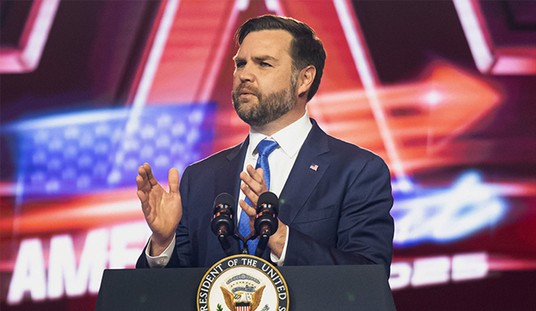Most observers are judging that as President, Barack Obama will rule from the center/left. This is not to say that he has scores of followers who will be urging him to do otherwise, and are anxiously awaiting the dawn of a new liberalism— complete with massive government spending on new entitlements and immediate universal health care.
But there are, as Max Boot observes in his Commentary blog, what he calls “Encouraging Signs from Obama.” Boot points hopefully to the front-runners for Treasury Secretary, Larry Summers and New York Fed President Timothy Geithner, and rumored choices for Homeland Security Secretary, L.A. Police Chief Bill Bratton, former New Jersey Governor Tom Kean, and Jane Harman, a centrist Democrat who served on the House Intelligence Committee.
The big question mark, Boot observes, is whom will Obama choose as Secretary of State. So far no names have been publicly floated, except by the one man who is lobbying for the post, Senator John Kerry of Massachusetts. As Boot writes: “It is hard to imagine a less propitious choice than the preening, self-regarding, leftist senator.” Keep Kerry in the Senate, Boot advises Obama, and don’t allow “liberal ideologues to grab control of his foreign policy.”
The most cogent and penetrating discussion of the choice Barack Obama has to make on this question comes for the pages of the conservative Australian newspaper, The Australian. Stephen Morris, currently a fellow at Johns Hopkins SAIS in Washington, D.C., writes that he too fears Kerry, because of what he calls his “dour demeanor, pedantic personality, and history of being on both sides of an issue.”
Morris, more than any other commentator, has put his finger on the real issue. It is that Obama has not expressed any real thought out and systematic views of foreign policy, and indeed, at times has shown “frightening ignorance.” At the time of the Russian attack on Georgia, he first suggested that the issue be taken to the U.N. Security Council. Most people, I suspect, don’t know that Obama had said that. Russia has a veto over any resolutions of the Security Council, and it would have been a meaningless gesture. (During the Korean War, the U.S. was able to get the Council to approve the US military intervention against North Kora, because the Soviets were boycotting the Council in protest of the UN’s failure to grant Communist China a seat.) Had Sarah Palin made a gaffe like that, it would have been all over the media.
President-elect Obama has indicated he will most likely retain Robert Gates as Defense Secretary, and has stated his desire to win the war in Afghanistan against the Taliban and al-Qa’ida as well as engage in a “responsible” rather than rapid withdrawal of U.S. troops from Iraq. Yet the choice of the person he appoints as Secretary of State will indicate whether or not he will be able to pursue such a path, or will be pulled toward the stance of those who favor only use of so-called “soft power.”
Those mentioned so far include, aside from Kerry, Bill Richardson, Chuck Hagel and Dick Lugar. Morris gives cogent arguments why most of these men would be not only deficient, but seriously poor choices whose credentials indicate little thoughtful analysis, and opposition in the past to the surge and to the successful strategy of General David Petraeus. Hagel, Morris points out, “thinks talking to the Iranians is the panacea for Iranian nuclear ambitions.” With the Iranian bomb perhaps the single major issue to face the new President, and Obama’s announcement that he knows Iran cannot be allowed to obtain a nuclear device, putting men such as Hagel and the others in charge of foreign policy could be a major disaster.
Lugar is the only one mentioned whom Morris sees as a good candidate. He judges him to be open-minded, a man who considers various alternatives, and who said the surge had to be given a chance to work. Moreover, he is a Republican, and choosing Lugar would be a sign that Obama wants a bi-partisan foreign policy.
One name, however, is not on the list. And many observers, including both Boot and Morris, think he would be the single best choice. This is Richard Holbrooke, the very experienced diplomat who brokered the Bosnia peace agreement and was Bill Clinton’s UN Ambassador. Holbrooke has also written the afterword for the 2007 paper edition of Paul Berman’s Power and the Idealists, in which Holbrooke tantalizingly suggests that Berman’s philosophical ruminations about the uses of power by the ’68 generation suggests a way towards a truly bi-partisan foreign policy. For Holbrooke’s own advice to the forthcoming President, and to see how thoughtfully and carefully he assesses the current world situation, you can read his essay here.
Holbrooke’s stumbling point on the way to this post, however, is that unlike his colleague Anthony Lake, he stuck with supporting Hillary Clinton in the primary fight and did not go over to Barack Obama. If Obama is indeed a man beyond petty politics, and is serious about putting the interests of our nation first, he will give serious consideration to the appointment of Richard Holbrooke.









Join the conversation as a VIP Member